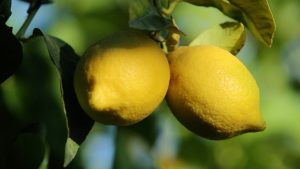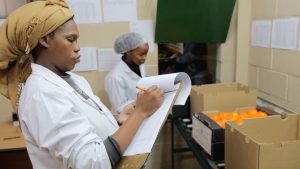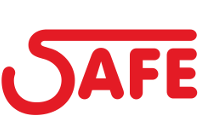The stable, expanding citrus export markets of the Far East, United States of America and Canada have piqued the interest of Cape Town-based producer and exporter SAFE (South African Fruit Exporters). Set to export just over 2.2 million cartons of citrus this year, SAFE is now looking at boosting exports specifically to these three regions outside of Europe.
“These booming markets are our biggest priorities now,” confirms Wibo van den Ende, Marketing Manager at SAFE, which grows and exports lemons, oranges (navels and valencias), soft citrus (mandarins and clementines) and grapefruit.
“This year we’re shifting our attention away from Europe, just slightly, and plan to export only 20% of our harvest to the continent. Thirty percent of our exports will make their way to the Middle East, 25% to the Far East, 20% to the USA and Canada, while 5% are destined for the shelves of Russia and Eastern Europe.”
Although it is still early days as far as SA’s 2017 citrus season is concerned, Van den Ende is upbeat about this year’s export prospects, which he describes as “fairly promising”.
“South Afr ican citrus are well received by most global markets – from the USA, Europe and the Middle East, right through to the Far East. There appears to be a larger demand for new mandarin varieties this year, while lemons still steals the show as SA’s citrus export ‘yellow gold’.” The country’s main competitors are Chile, Argentina and Uruguay.
ican citrus are well received by most global markets – from the USA, Europe and the Middle East, right through to the Far East. There appears to be a larger demand for new mandarin varieties this year, while lemons still steals the show as SA’s citrus export ‘yellow gold’.” The country’s main competitors are Chile, Argentina and Uruguay.
Van den Ende says the unusual occurrence of navels splitting and dropping off their trees in the Eastern Cape (and to a lesser extent the Western Cape) will probably lead to a drop of 40% to 50% in SA’s 2017 navel harvest. The other side of this coin (and good news) is that these smaller volumes push up the demand for oranges, which in turn increases prices.
He points out that projections for Eastern Cape and Western Cape citrus volumes are conservative, due to the navel-drop outbreak and a backbreaking Western Cape drought resulting in record-low dam levels and serious water shortages.
These challenges might make it difficult to meet markets’ demand in terms of quality and quantity this year. “Fortunately SA and SAFE are looking forward to proper, high-value arrivals in August and September,” says Van den Ende.
SAFE continues to work closely with its quality assurance team to make certain it keeps any issues pertaining to Citrus Black Spot (CBS) and the False Codling Moth (FCM) under control – both sensitive matters especially for European importers.
“With the right infrastructure and well-adapted storage and logistics systems in place, we ensure that we adhere to the proclaimed cold treatment measures against the FCM. In addition, we go to great lengths to comply with all conditions, regulations and checks relating to CBS,” he concludes.

